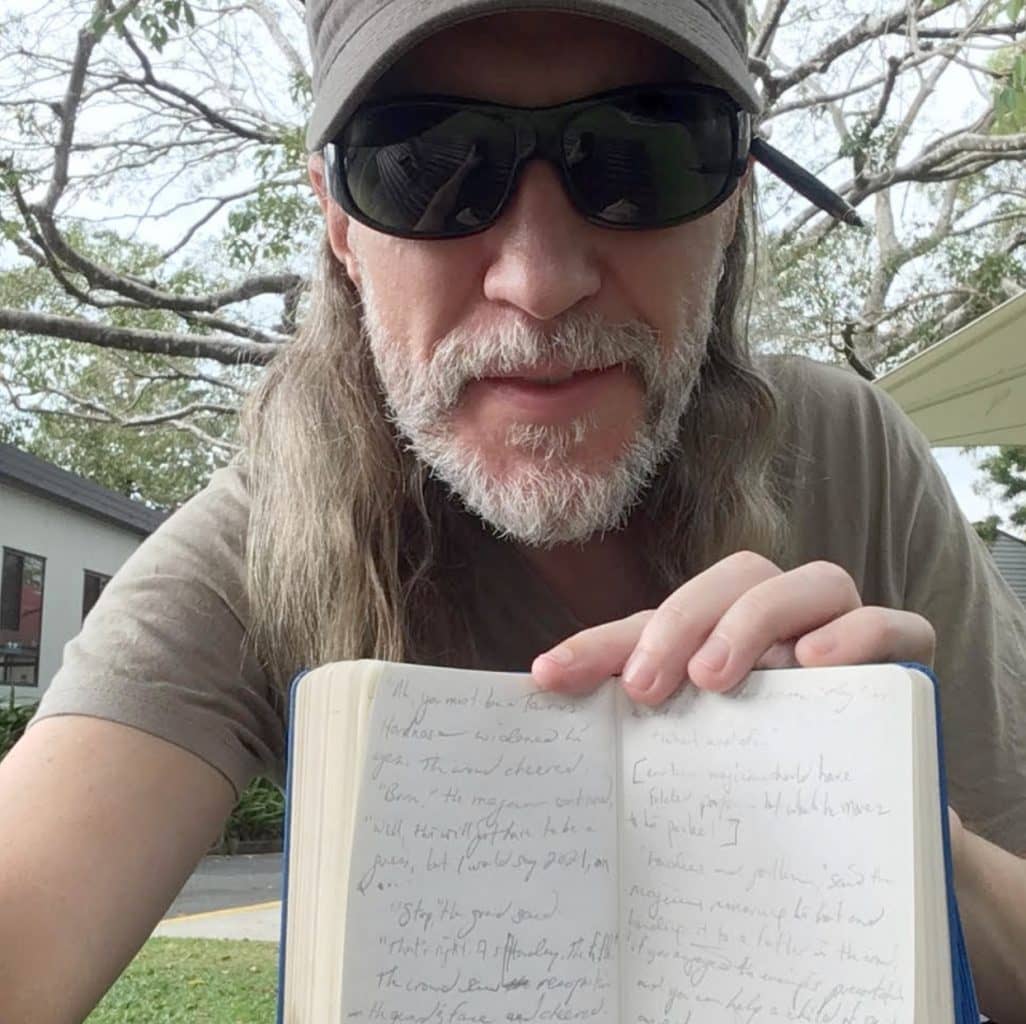Podcast: Download
Subscribe: Apple Podcasts | RSS
 The time to start studying for finals is as early as possible – but always with accelerated learning strategies.
The time to start studying for finals is as early as possible – but always with accelerated learning strategies.
And yes, the common advice that you need to take care of your sleep, diet and fitness in order to study well still stands.
It also helps to keep organized and make the most out of your classes and review sessions.
But if you have a nagging feeling that there must be better study tips for finals, then you’ll want to pay attention to the strategies I just mentioned.
This is the knowledge that you can only get from a PhD like me.
And because you’re the kind of person who wants more than just a passing grade, you’re going to love the tips on this page.
Because you’re the kind of learner who wants to enjoy an epic career, you’re going to need them.
Once you have them, you’ll be the student with all the advantages.
You’ll be the student who aces the finals.
And you’ll be the student who enjoys an epic career in any field you want because you’re the one who finally learned how to really learn.
Ready?
Let’s dive in!
How To Study For Finals: 10 Tips That Actually Work
As we go through this list, I’ll be sharing with you more than tips.
You’ll discover detailed examples of why and how these study principles and strategies work so well. I’ll also give you scientific references and other research resources so you know that everything I’m suggesting is valid.
But here’s something really important to understand:
There is no cookie-cutter, one-size-fits-all study method.
You need to get involved in the process and tailor some of these strategies for yourself. And I’ll start with a powerful way you can do this in my first tip.
One: Clear Your Mind With This Simple Tool
It’s normal to be nervous when studying for exams. The mind kicks up all kinds of fears and we resist common sense thanks to all kinds of biases.
That’s why it’s important to always start the process of preparing for exams on the basis of mental strength, not weakness.
So to begin, start with this simple exercise:
- Start a study journal
- “Mind dump” all of your anxieties about the exam onto paper (kind of like brainstorming)
- Analyze your fears and question why you have them
Once this is done, you can use the same journal to complete some of the steps discussed below.
If you prefer mindmapping, you can do that as an alternative to keeping a journal. I give a detailed example of how this exercise works on a mind map in this video.
This step works because when we have a bunch of worries on our mind, they keep arising until we deal with them. The Zeigarnik Effect describes why and how our minds become cluttered with unattended worries. And research shows that addressing those worries in a journal helps us eliminate them.
This ability is especially important when you’re dealing with boring topics, which every student does at some point in their learning career.
Two: Get The Big Picture
Yes, you absolutely want to get a head start when studying for finals. But even more importantly than starting early, it’s important to understand as much as possible before the semester begins.
When I was an undergrad, I used to contact the professors the day I registered in their courses. I asked them for the course syllabi so I could do three things in advance:
- Enter all the assignment due dates into my calendar
- Enter all the exam dates into my calendar
- Start gathering and studying the reading list immediately
This process was critical for me because I worked sometimes up to three jobs when I was an undergrad. But getting this overview of the semester on a course-by-course basis will help even those who have student loans or grants and don’t have to work.
Indeed, later when I had grants of my own and didn’t need to hold so many jobs, I still used this approach.
As a result, I was always able to get my assignments done with time enough to revise them at least once. And I was also able to read beyond the assigned book list.
It takes 10-15 minutes to reach out to all of your teachers and arrange to get the syllabi in advance. If you can’t get in touch with them, contacting the department secretary also works. You can often swing by the departmental office to get an advance copy as well.
Three: Communicate Loud And Clear
Do you know that most interruptions are a choice?
You choose them when you don’t communicate your priorities to others.
Once you’ve received your syllabi and blocked off the entire semester in your calendar, you can give your friends and family a copy. Let them know how seriously you’re taking your studies and ask them to avoid interrupting you. Most people will be more than happy to support you.
Likewise, you want to make sure your employer knows well in advance of times when you’ll be dealing with assignments and exams. Since they’re only human and often dealing with multiple employees and a variety of seasonal projections, the earlier you let them know your scheduling needs, the more they’ll be able to treat you flexibly.
I did this all the time during university. All of my employees appreciated it very much and I wound up getting more overtime during the summers than anyone else at one of my jobs because I communicated so well. This scheduling boon meant that during the times I worked less so I could study more I wasn’t suddenly struggling financially.
Finally, you should always communicate with your teachers. For example, I’ve had jobs where there were opportunities to work more due to seasonal shifts. If there was an assignment conflict, I let my professors know and arranged for different dates.
I’ve even arranged alternative assignments and exams with professors that enabled me to miss many classes without harming my grade at all.
Four: Read Right The First Time
There’s a so-called “speed reading” expert named Howard Berg who proves that the Guinness World Records people have a sense of humor.
In fact, his record reads that Berg:
…has convinced a number of TV hosts that he comprehends and remembers what he scanned, perhaps not the details, but the concepts, with the details left for a later, slower reading.
When I teach people how to read faster, I skip the nonsense and teach you how to read right the first time. The method helps you avoid falling asleep while reading.
And you’ll learn all kinds of advanced ways to use flashcards, Anki and note taking.
If you want to learn the method in full, check out my blog post on memorizing textbooks. It allows you to read deeply, extract all the main points and rapidly commit them to memory.
That way, you will rarely have to go back to review a book again. Frankly, that takes too much time and simply shouldn’t be necessary.
Point being, skip the speed reading pseudoscience like subvocalization suppression and learn to read actively.
Five: Slow Down And Think
If you’re a slow reader, that might actually be a good thing as you’re learning how to study for finals.
That’s because too many students cram instead of using memory hacks and memory techniques. These techniques are very important because they give you more time to reflect.
Studies show that when you slow down and reflect on your current grades, future grades will improve.
Likewise, studies show you will understand difficult and confusing concepts better by reflecting on them. Physicist Richard Feynman was such an enthusiastic proponent of this study technique, they named it as a method after him.
Since then, many studies have shown that when you stop and take time to think without making it a formal study session, you’re using active recall. This process of using your mind helps you form memories quicker, memories that have lasting power that will serve you long after the finals are over.
Six: Write Summaries
Remember that journal I suggested you keep?
It will help you reflect in the ways I just mentioned. And writing is also a great way to help you remember what you’ve learned faster.
Scientists know that writing summaries helps you learn and remember faster, but some think they are hard to write.
In reality, summaries can be simple. In order to get the job done quickly and experience the benefits, I used to summarize entire books on index cards.
By limiting my notes to two sides of one card, I kept my focus on the biggest and most important ideas. Or, if I’m using a journal, I summarize using a maximum of two pages.
By doing this, I made sure that I wasn’t re-writing every detail of the book. I was just getting down the big picture, and by doing so, crystalized many of the granular details as well. Often, I would jot these out on the card as well in the form of bullet points.
So when I suggest that you prepare for finals by writing summaries, I’m not talking about writing epic essays. Just a few sentences will be tremendously helpful.
Seven: Choose Study Groups Carefully
Make no mistake:
Study groups can be absolutely fantastic.
But they can also be a giant time suck.
I’ve experienced both versions, and it often takes only one apple to ruin a bunch.
So I learned to have all the members of my study groups sign an oath of commitment.
Sure, this sounds stiff and formal, but it was tremendously beneficial.
On the same document, I codified how the study groups were to run and that way everyone had the plan in mind and knew what to expect.
The best part?
Because we were all disciplined and spent our time wisely as we covered the big points and the granular ideas we were responsible for on the finals, we enjoyed our free and informal time after the study sessions much more.
Eight: Avoid Topic Exhaustion
Learning fatigue is real, especially if you’re cramming.
Try interleaving instead.
Basically, this technique involves reading for a short period of time from one book and then switching to another.
You would think this would break your focus when reading, but it has been shown to boost how you’re paying attention. Switching between readings also increases diffuse thinking, an automatic process related to how implicit memory interacts with explicit memory.
What doesn’t work, however, is switching from reading to social media or watching movies. That has the opposite effect.
So I suggest you pile up a bunch of books while in the library, and rotate through them. This is what I look like when I’m interleaving to avoid topic exhaustion:
Nine: Study For Finals In Strategic Locations
There are many excellent places to study.
To get started finding them, read my article on the best study locations and then experiment with a bunch.
You can also come up with a “relocation schedule.”
To this day, I still like to move from location to location while reading and writing. I call it “roadwork” and as Alex Pang points out in Rest, rotating locations has been the key to the successes of many smart and accomplished people.
Ten: Use Ancient Memory Techniques
Long before books existed, our ancestors needed to carry voluminous amounts of information in their minds. Many of the learning techniques they used are still helpful today.
One of the key and strongest of all accelerated learning techniques is called the Memory Palace.
It takes a bit of setup, but it’s worth it.
You basically create a map of locations in your mind and then associate information with familiar rooms using mnemonic images.
If you need help learning this powerful technique, please grab my Free Memory Improvement Kit:
You’ll rapidly master it and enjoy an encyclopaedic memory as you sit for all your finals.
When To Start Studying For Finals
As I shared with you, I used to start studying for finals before the semester even began.
But the truth is that you ultimately have to answer that question for yourself.
The trick is to avoid making errors that cost you time and money because you have to retake exams or repeat entire semesters.
And to do that, look at your calendar as soon as possible.
Try to make the most reasonable projection and block out as much study time as possible.
Keep in mind that topic exhaustion is real and use the many techniques I shared today to compensate.
Although I’m pointing out that you’re ultimately on your own to make these decisions, you’re never alone.
For example, when you join my community, you’ll always have people to discuss study strategies with, people who look beyond the finals.
And that’s what I encourage you to do each and every day.
To avoid the biggest errors of all, look beyond your final exams and see life as a constant series of tests and quizzes.
Invest in your mind and memory a.s.a.p. And learn the foundational memory techniques I share with the world so that you are a mental master who just happens to be a learner.
That way you will study using energy-creating power, and not the power-draining “force” of cramming so many other learners choose.
So what do you say?
Are you ready to prepare for your finals starting today?
Thanks for reading and enjoy the process of becoming a lean and mean learning machine!
Related Posts
- Coconut Oil and Memory: Can It Boost Your Brain? [Advanced Study]
Is coconut oil good for memory and memory improvement? In this advanced study, you'll discover…
- Stoic Secrets For Using Memory Techniques With Language Learning
Christopher Huff shares his Stoic secrets for using memory techniques when learning a language. You'll…
- The German Professor Who Defends Memory Techniques for Language Learning
This professor defends memorization techniques for learning foreign languages and has the science to prove…












2 Responses
Hello Anthony I’m Brazilian and I love all your content I read your book the mind victorious and I don’t miss any post I do college at a distance could you make a post giving tips on how to get the most out of this teaching modality? I am immensely grateful for this blog to exist, I hope one day to meet you in person to thank you
Thanks, João. I’m glad you read The Victorious Mind and that you like the site.
Can you say more about how you’re currently approaching remote learning? I taught for an online university for a couple of years, so can probably say a few things that will help, but it’s best if I know where you’re at right now to make it specific for you.